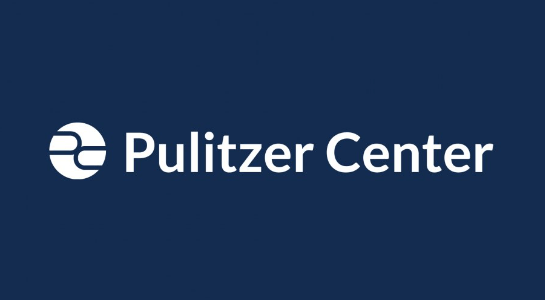Apply now: Pulitzer Center Local Letters for Global Change Contest
Pulitzer Center Local Letters for Global Change Contest 2024 for K-12 students worldwide. K-12 students are encouraged to express their opinions this autumn by composing a letter to a local elected official. In your letter, articulate the global issue you believe should be prioritized, illustrate its relevance to your local community, and suggest a potential solution. This Pulitzer Center Local Letters for Global Change Contest contest provides an opportunity for students to engage in global citizenship, civic participation, and persuasive writing, while also delving into significant yet underreported issues that resonate with them through the news stories provided by the Pulitzer Center.
The Pulitzer Center is eager to read and disseminate your letters: share with us and the world what matters most to you. Continue reading for further details about the contest.

Eligibility: Pulitzer Center Local Letters for Global Change Contest
We invite submissions from all K-12 students currently enrolled worldwide. Letters may be composed in either English or Spanish. Each letter should focus on one of the five key issues identified by the Pulitzer Center:
- Climate and Environment (Covers topics such as climate change, pollution, extractive industries, and additional related subjects)
- Global Health (Encompasses health disparities, food security, mental health, water and sanitation, among others)
- Human Rights (Addresses issues including racial justice, gender equality, migration and refugee matters, Indigenous rights, and more)
- Information and Artificial Intelligence (Involves discussions on technology’s impact on society, misinformation, and related themes)
Peace and Conflict.
Prizes: Pulitzer Center Local Letters for Global Change Contest
- We will identify one first-place winner and up to four finalists for each category of issues. The first-place winner will be awarded:
- $300 to enhance global community engagement within your classroom (the prize will be allocated to your class teacher)
Publication of your letter, photograph, and biography on the Pulitzer Center website. - Finalists will receive:
- $75 to promote global community engagement in your classroom (the prize will be allocated to your class teacher)
Publication of your letter, photograph, and biography on the Pulitzer Center website. - All participants in the Pulitzer Center Local Letters for Global Change contest will be invited to join a Pulitzer Center town hall event, which will take place virtually in November, allowing them to present their solutions alongside other students from around the globe.

Deadline: Pulitzer Center Local Letters for Global Change Contest
- Friday, November 15, 2024 at 11:59pm EST
Entry Guidelines: Pulitzer Center Local Letters for Global Change Contest
1. Navigate to the Suggested Stories tab located above and select a narrative that provides you with new insights regarding an issue of significance to you. (All eligible narratives can be found at www.pulitzercenter.org/stories.)
2. Compose a one-page letter addressed to a local representative that responds to the following inquiries:
Which issue do you wish for the local representative to tackle?
What is the global significance of this issue? (Be sure to reference evidence from the Pulitzer Center-supported narrative! Additional sources may also be utilized for evidence.)
Why does this issue hold importance for your local community and/or for you personally?
What is your reason for addressing this individual? What authority and/or duty do they possess?
What actions do you want this individual to take? Propose a solution and provide evidence to support the effectiveness of your proposed solution.
You may choose to answer these questions in any order, but ensure that your letter addresses all five inquiries. For assistance in drafting your letter, refer to the Resources for Teachers and Students tab above.
3. Submit your letter using the contest entry form (available August 16). This form will require some basic personal and contact details, the name and contact information of one of your teachers, and you can directly copy and paste your letter into the form.
4. The contact information for your representatives can be found online. After submitting your letter to the Pulitzer Center, consider sending your letter directly to them via mail or email.
Judging Criteria: Pulitzer Center Local Letters for Global Change Contest
- Letters will be evaluated according to the following criteria. The Pulitzer Center team has provided several guiding questions and recommendations:
- How can I effectively convey this global issue and its significance to someone who may not be well-acquainted with it? It is essential for your reader to grasp the issue before you present a solution. Consider how you can articulate it succinctly and clearly, emphasizing its importance. Utilize the Pulitzer Center news article as a reference while summarizing, and ensure that you properly cite your sources. Are there specific facts, statistics, or quotations from the article that could aid in illustrating the issue and its ramifications?
- In what ways am I personally connected to the global issue I am addressing? Many students will engage with news stories from regions that differ from their own. In your letter, recount the details of the news story you have read and elucidate how the core issues relate to your own community. Are you or others in your local area impacted by the same challenges? Do the actions taken by your community influence the individuals and locations discussed in the article? Identify the broader systemic issues presented in the news story and clarify how they resonate with you on a local or personal level.
- What existing solutions are available for this problem? It is likely that others are already addressing this issue both locally and globally. There is no need to start from scratch! Consider advocating for a solution that has proven effective in the past or is currently being implemented. You might discuss how a successful solution from another area could be adapted locally, or how the efforts of individuals or organizations in your community could be bolstered.
- Who possesses the authority to bring about the change I wish to see?
To maximize the impact of your letter, it is crucial that it reaches an individual with the capacity to enact the solution you are proposing. Familiarize yourself with your elected representatives and determine which office should receive your correspondence. For instance, if your concerns pertain to local educational matters, addressing a member of the school board would be appropriate. Conversely, if your focus is on state-level legislation, your state senator or governor may be the most suitable recipient. - What evidence have I presented to substantiate my assertions?
Your letter serves as a persuasive communication: firstly, it aims to inform and engage your reader regarding the significance of the issue at hand, and secondly, it advocates for the effectiveness of your proposed solution. To strengthen your arguments, it is essential to provide supporting evidence. You are required to reference at least one news story from the Pulitzer Center, but you may also include information from other reputable news outlets, scholarly articles, reports from organizations and governmental bodies, as well as personal anecdotes and experiences.
Support for Preparing Students for the Contest: Pulitzer Center Local Letters for Global Change Contest
- Kindly proceed to the “Resources for Teachers and Students” tab located above to access slide presentations intended to guide students through an introductory workshop, as well as a worksheet designed to assist students in composing their letters. This worksheet may be utilized by students independently or with the support of an educator. The slide presentation is specifically crafted for educators to lead the session.
- The “Suggested Stories” tab features a carefully curated selection of stories recommended for various grade levels, organized by thematic focus.
- Educators who are working with groups of 50 or more students have the opportunity to arrange a complimentary virtual workshop, facilitated by a member of the Pulitzer Center Education team. For further details regarding these workshops, please refer to the “Resources for Teachers and Students” tab above.





